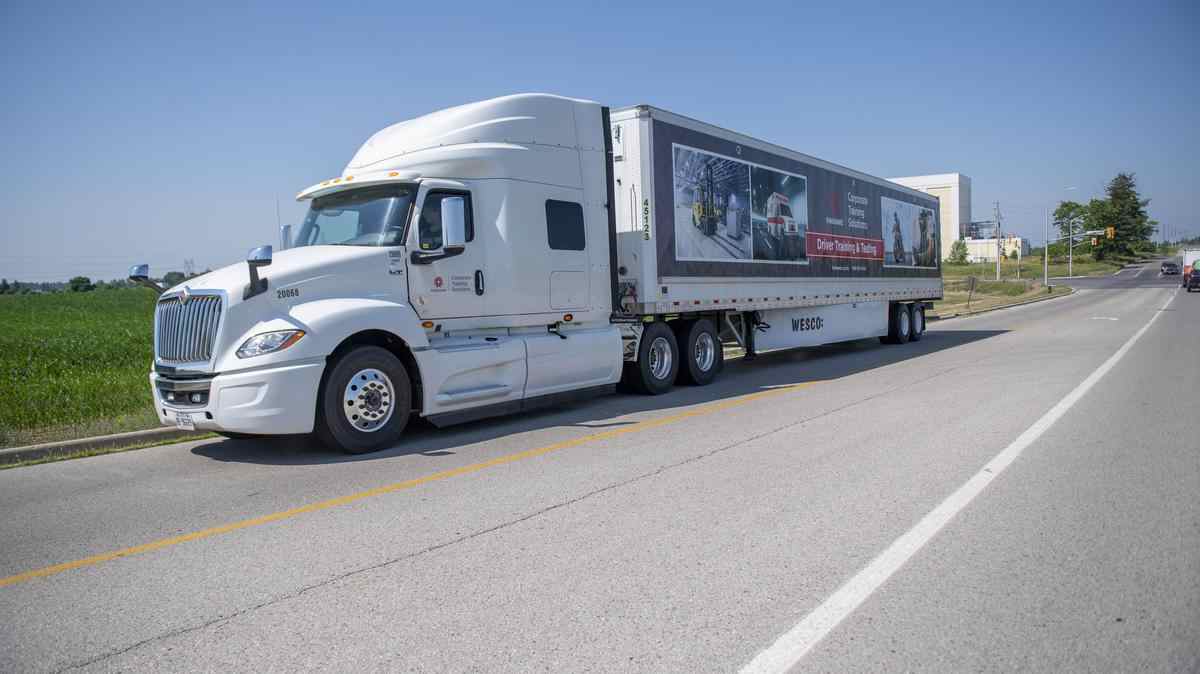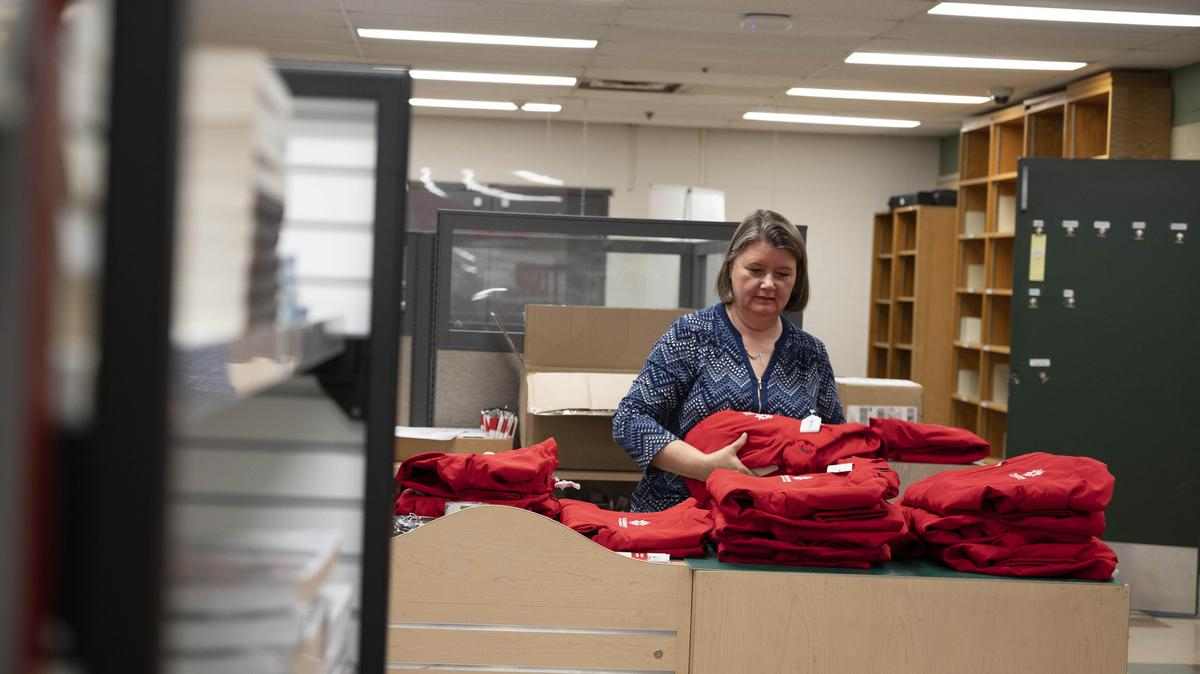
When you begin your educational pathway, you want assurance that job opportunities will be available when you’re ready to join the workforce. The job market evolves and grows with technology and advancements. Getting a post-secondary education might take one to four years (or more), and career prospects can change in that time. That’s why we’re taking a deeper look at the data to see what job prospects could look like as far into the future as 2031.
Of course, you don’t have to pursue one of the jobs on this list to find a good job in Canada, but it’s a good starting point for investigating possible career choices. You’ll also want to consider other factors about future careers, including your interests and talents or earning potential.
Not sure what your interests are? Take the Pathfinder Quiz!
What is NOC?
NOC stands for National Occupation Classification. Statistics Canada primarily uses this classification system to classify different occupations. We’ve used it here so you can find more info on each occupation through the Statistics Canada website.
Table of Contents
1. Nurse aides, orderlies and patient service associates
2. Registered nurses and registered psychiatric nurses
3. Transport truck drivers
4. Information systems specialists
5. Retail sales supervisors
6. Light duty cleaners
7. Professional occupations in advertising, marketing and public relations
8. Administrative officers
9. Food counter attendants, kitchen helpers and related support occupations
10. Store shelf stockers, clerks and order fillers
11. Early childhood educators and assistants
12. Elementary school and kindergarten teachers
13. Material handlers
14. Food and beverage servers
15. Bus drivers, subway operators and other transit operators
Top 15 In-Demand Jobs in Canada
Nurse aides, orderlies and patient service associates
NOC: 33102
Average annual income: $47,680*
Growth: This occupation is expected to see a 21% growth from 2023 to 2031 with an increase of over 67,495 positions in Canada.
What is a nurse aide?
This classification of roles includes things like nurse aides, orderlies, special care facility attendants and hospice workers. See all occupations under nurse aides, orderlies and patient service associates. Paramedics and nurses are not included. In this type of career, you would assist patients with everyday activities, such as dressing and eating, and perform tasks like taking blood pressure or temperature, carrying messages and reports between departments and general maintenance.
Who is this a good fit for?
This type of job is a good fit for those interested in working in health care or helping people but who do not want to pursue or don’t currently have additional education to become a nurse or doctor. People with good communication skills, attention to detail and teamwork skills will do well in this field.
How to get into this field
Some high school education is typically required and on-the-job training may be provided. CPR and first aid training are usually required. Some positions under this classification may require post-secondary education or additional certifications.
- Pre-Health Sciences Pathway to Advanced Diplomas and Degrees is a good place to start if you’re interested in working in health care. Additionally, this program will set the stage for a pathway into a diploma or degree program in health.
- Personal Support Worker: This one-year college certificate prepares you for a personal support worker position through theoretical and practical learning experiences. Build a solid foundational knowledge in health, wellness and personal support.
2. Registered nurses and registered psychiatric nurses
NOC: 31301
Average annual income: $88,000*
Growth: This occupation is expected to see a 20% growth from 2023 to 2031 with an increase of over 67,472 positions in Canada.
What does a nurse do?
A registered nurse or registered psychiatric nurse works within our health care system to provide direct nursing care to patients, health education programs and consultative services related to nursing. This profession can include tasks such as assessing patients to determine appropriate nursing interventions, administering medications and treatments prescribed by a physician and assisting in medical procedures.
These roles require specific education and training, including completion of an approved registered nursing program. If you wish to specialize, additional education or training is required.
Who is this a good fit for?
Nursing is a good career option for people with compassion and an interest in health and caring for others. Nursing can be emotionally and physically demanding so individuals with resiliency and flexibility excel in this field. Communication and critical thinking skills are important and an interest in continually learning is also a good value to have.
How to become a nurse
Nurses are required to have completed a university, college or other approved registered nursing program and additional academic training to specialize. You will also need to register with a regulatory body in the province where you will practice. For some roles, you may need a master’s or doctoral degree in nursing. Check out these nursing programs:
- Collaborative Nursing: This accredited four-year degree is a collaborative program between Fanshawe College and Western University. You’ll graduate with a Bachelor of Science in Nursing Degree (BScN). Get hands-on experience in a 12-week clinical placement in your final term. Graduates can apply for registration with the College of Nurses of Ontario.
- Practical Nursing: This two-year Ontario College Diploma will give you hands-on experience through clinical practice and simulations in addition to in-class learning and prepare you for the Canadian Practical Nurse Registration Examination. If successfully completed, you’ll be able to register for the College of Nurses of Ontario as a Registered Practical Nurse.
Interested in health care, but don’t have the admission requirements for a nursing degree or diploma? Take the one-year Pre-Health Sciences Pathway certificate program and follow this pathway into your desired nursing program.
3. Transport truck drivers
NOC: 73300
Average annual income: $56,400*
Growth: This occupation is expected to see a 13% growth from 2023 to 2031 with an increase of over 43,753 positions in Canada.
What does a transport truck driver do?
This occupation involves driving straight trucks or tractor-trailers to transport freight. This can include both long-haul and short-haul transport truck drivers. Transport truck drivers may operate vehicles 4,500 kg and over between urban centres or along inter-provincial or even international routes. This occupation can include planning, vehicle inspections and emergency repairs. Drivers may drive alone, as part of a two-person team or in a convoy.
Who is this a good fit for?
If you love driving this job might be for you, specifically if you like driving large vehicles or long distances. People who appreciate independence and have good practical problem-solving skills as well as an interest in vehicle maintenance may enjoy this field.
How to become a transport truck driver
While transport truck drivers usually do need to have completed high school, a post-secondary education is usually not required. However, you may need to complete an accredited driver training course or obtain a specific licence depending on the type of vehicle you will be driving.
Review our Driver Training and Testing Courses to learn about different licensing options.
Make sure you complete the required steps for obtaining an A, D or F class licence before starting your course!
4. Information systems specialists
NOC: 21222
Average annual income: $94,400*
Growth: This occupation is expected to see a 14% growth from 2023 to 2031 with an increase of over 32,225 positions in Canada.
What is an information systems specialist?
Information systems specialists design, develop, test and set up information technology (IT) systems. They improve infrastructure, collect and analyze data, update processes and perform maintenance within these systems. Overall, their role is focused on optimizing IT to meet organizational needs and goals. They can work in public or private sector organizations.
Who is this a good fit for?
Individuals who like to work with technology and computers will enjoy this type of role. You’ll also want to develop other important skills such as problem-solving abilities, attention to detail, communication skills, adaptability, and teamwork
How to become an information system specialist
This role often requires completion of a college program or a bachelor’s degree in a related field as well as computer programming experience. Additional credentials can also be obtained for certain positions.
Check out these options:
- Computer Systems Technician: In this two-year Ontario College Diploma program, learn how to provide enterprise-level front-line support for today’s future-forward companies. Get to know the kinds of systems organizations use and how to work with them as well as how to work within a team to solve problems and provide support.
- Computer Systems Technology: Gain hands-on experience with this 3-year advanced diploma co-op program, which covers networking, security, data storage and more from design and implementation to management and troubleshooting of these systems.
- Technical Systems Analysis: Learn how to collect and understand vast amounts of data to help make business decisions in this one-year graduate certificate program. Prepare for a career by building a solid foundation in business data analysis and modelling, application software development, business process and resource planning and communication skills.
5. Retail sales supervisors
NOC: 62010
Average annual income: $49,480*
Growth: This occupation is expected to see a 10% growth from 2023 to 2031 with an increase of over 26,770 positions in Canada.
What does a retail sales supervisor do?
Retail sales supervisors work in retail environments, supervising and coordinating the activities of workers. In this occupation, workers perform duties such as assigning and scheduling work, managing inventory, hiring, training and more. Retail sales supervisors can work in a variety of different types of organizations including retail stores, wholesale businesses and telemarketing agencies.
Who is this a good fit for?
If you like working with people in a leadership role, this occupation could be for you. Enjoying and excelling in sales is also an important part of this role along with customer service, so you’ll want to have strong communication skills.
How to get the role of retail sales supervisor
Typically, you’ll want to have your high school diploma to get this type of role. Many businesses are also looking for people who have retail sales experience. Take this career to the next level with the following program:
- Fashion Marketing and Management: Learn the business, technological and visual presentation skills needed to excel in a career in the retail industry. This two-year diploma program prepares you for the workplace with in-class learning and real-world opportunities like operating our online and on-campus retail store as well as networking with industry professionals.
If you’d like to exercise your leadership skills, check out our leadership courses for individuals and employees.
6. Light duty cleaners
NOC: 65310
Average annual income: $37,240*
Growth: This occupation is expected to see a 10% growth from 2023 to 2031 with an increase of over 25,815 positions in Canada.
What is a light duty cleaner?
Light duty cleaners work in a variety of locations offering light-duty cleaning services including sweeping, mopping, dusting and washing linens. They are employed by a variety of organizations to clean spaces such as offices, lobbies, hotels, hospitals and more.
Who is this a good fit for?
If you’re considering a role as a cleaner, you’ll want to have great attention to detail and knowledge of a variety of cleaning techniques. You’ll need to know how to use chemicals safely. Physical stamina is also important in this role as it requires a lot of movement.
How to become a light duty cleaner
This role typically does not require any specific post-secondary education, but you’ll want to have a high school diploma. Additionally, on-the-job training is usually provided.
7. Professional occupations in advertising, marketing and public relations
NOC: 11202
Average annual income: $78,200*
Growth: This occupation is expected to see a 13% growth from 2023 to 2031 with an increase of over 25,339 positions in Canada.
What do marketing, advertising and PR professionals do?
Professional occupations in advertising, marketing and public relations (PR) work to promote different products, services and even ideas. They can also provide communication strategies to manage public opinion. These professionals are needed in many different types of organizations, including advertising agencies, corporations, government organizations, and many more–any business that needs advertising may employ these individuals.
Who is this a good fit for?
If you have an interest in marketing and promotion, this career might be for you. People who have a creative mind as well as an analytical side will excel in this type of role. You’ll also want to have strong communication skills, crisis management skills and a client-centred approach.
How to start a career in marketing
Usually, you’ll be expected to have either a degree or a college diploma in a marketing field or a related subject for jobs in this type of career. Check out some program options in the marketing and PR field:
- Business - Marketing: Take this two-year marketing diploma to build foundational skills in marketing in both traditional and digital platforms. You’ll also learn about business and accounting, market research, analytics and more. Progress from this program into our Marketing Advanced Diploma or our Honours Bachelor of Digital Marketing.
- Business - Marketing (Co-op): Get hands-on experience with this two-year co-op marketing diploma program. Gain foundational skills in key topics in marketing such as analysis, digital marketing, research and communications and get work experience during your co-op.
- Honours Bachelor of Commerce (Digital Marketing): You will gain hands-on experience in this four-year Honours Bachelor of Commerce degree program through a paid co-op work term. You’ll gain the core fundamentals of business as well as cutting-edge training in specialized digital marketing courses. You’ll also be able to pursue a master’s degree at many other institutions.
Level up with a graduate certificate:
- Digital Communication Management: Advance your career with the tools and skills to develop and distribute content to attract and engage diverse audiences in this intense, one-year program. Gain functional knowledge and specialized skills in digital communications including content strategy and curation, user experience and user design.
8. Administrative officers
NOC: 13100
Average annual income: $61,000*
Growth: This occupation is expected to see an 11% growth from 2023 to 2031 with an increase of over 24,929 positions in Canada.
What does an administrative officer do?
Administrative officers work to coordinate office or workplace operations, implement administrative procedures, establish priorities and manage information and records. Administrative officers are needed in all kinds of businesses and organizations in both the public and private sectors.
Who is this a good fit for?
Administrative officers usually have stellar communication skills and an interest in keeping things well-organized. You may want to consider this career if you have good attention to detail, comfort with computers and record keeping as well as information management and time management skills.
How to become an administrative officer
You must have completed your high school education and typically, a post-secondary education in this field is required, such as a degree or college diploma. Check out some programs you can take to get there:
- Office Administration - General: This one-year Ontario College Certificate will prepare you for an office administration role. You’ll develop skills in communication, problem-solving, computer applications, accounting and office procedures. Take this program and follow our pathway into the third semester of either Executive or Health Services diplomas.
- Office Administration - Executive: This professional two-year Ontario College Diploma program will set you up for a successful professional office administration career. It’s designed to provide an extensive and practical understanding of business operations, technology and processes.
- Office Administration - Health Services: In this two-year Ontario College Diploma, you’ll gain skills both in class and in a work placement term. You’ll learn about medical terminology and transcription, patient management, billing and office procedures.
- Business Administration - Leadership and Management: If you’ve completed the two-year business diploma program, continue for a third year to earn this Ontario College Advanced Diploma. Gain skills in leadership, strategic planning, performance management and more.
9. Food counter attendants, kitchen helpers and related support occupations
NOC: 65201
Average annual income: $34,040*
Growth: This occupation is expected to see a 6% growth from 2023 to 2031 with an increase of over 24,666 positions in Canada.
What do food counter attendants do?
People in this occupation help prepare simple food items, serve customers, clear tables, clean kitchen and restaurant areas and perform other activities to assist in food preparation. These employees often work in cafés, restaurants, hotels and hospitals.
Who is this a good fit for?
If you like food preparation and fast-paced work, this occupation might be for you. Often, many people who don’t yet have extensive work experience or education will start in this type of environment to gain work experience and advance. You’ll want to have great customer service, attention to detail, flexibility and time management skills to excel in this role.
How to get into this field
Usually, you’ll need some high school education for this type of occupation, but on-the-job training is provided to give you the required skills.
Boost your culinary career with the following program:
- Culinary Skills: If you want to advance or begin a career in the culinary environment, this one-year program can help you do just that! Develop your culinary skills, fine-tune food prep and knife skills and gain theoretical knowledge in nutrition, menu planning, and more.
10. Store shelf stockers, clerks and order fillers
NOC: 65102
Average annual income: $37,800*
Growth: This occupation is expected to see a 9% growth from 2023 to 2031 with an increase of over 21,669 positions in Canada.
What do shelf stockers, clerks and order fillers do?
In this occupation, workers stock shelves, pack customer orders and price items. They may also perform some cleaning duties, operate cash registers and computers for electronic transactions and work with machinery to move and organize products.
Who is this a good fit for?
This is another great role for those seeking to start their career or gain work experience to move upwards. You’ll want to have good organizational and communication skills as well as be interested in providing good customer service, reliability and flexibility.
How to get into this field
You’ll likely need to have some high school education to secure this type of position. If you’re looking to upgrade or advance, leadership courses are available.
11. Early childhood educators and assistants
NOC: 42202
Average annual income: $37,400*
Growth: This occupation is expected to see an 8% growth from 2023 to 2031 with an increase of over 20,988 positions in Canada.
What is an early childhood educator?
This occupation involves working with children from infancy to the age of 12. Early childhood educators and assistants plan and implement programs and activities for children to help them learn, grow and develop in a safe and secure environment. They often work in child-care and daycare centres or kindergartens.
Who is this a good fit for?
Enjoying working with children is a must for this role. You’ll also want to demonstrate patience and compassion and have specialized knowledge in early childhood development. Additionally, the ability to foster a creative environment, plan a curriculum and ensure the health and safety of children are all important.
How to become an early childhood educator or assistant
Early childhood educators need to have completed a college program in childhood education or a bachelor’s degree in child development. In most provinces, you will also need to acquire a licence.
To become an early childhood educator assistant, you’ll need to have completed high school and have experience in childcare. You may need a certificate in early childhood education. Licensing may also be required for this role. Here are some program options to explore:
- Early Childhood Education: This two-year Ontario College Diploma will build your skills and knowledge in early childhood education. Learn the importance of play in learning, family involvement and curriculum development.
- Child Development Practitioner (Apprenticeship): Gain an Ontario College Certificate through this apprenticeship program. Earn while you learn and work towards your certificate. This is a great fit for people who are already working as an early childhood educator and wish to build upon their skills.
- Child and Youth Care: Take this three-year Ontario College Advanced Diploma to learn about family issues and children’s emotional and behavioural challenges. You’ll develop counselling skills, examine child abuse and neglect, mental health issues and familial structures as well as psychotherapy techniques.
- Human Services Foundation: If you’re interested in helping people, this one-year certificate program will prepare you for multiple career options in human and community services. It also offers excellent preparation for any of Fanshawe’s Human Services career programs, such as Child and Youth Care or Early Childhood Education, noted above.
12. Elementary school and kindergarten teachers
NOC: 41221
Average annual income: $74,000*
Growth: This occupation is expected to see a 9% growth from 2023 to 2031 with an increase of over 19,652 positions in Canada.
What do elementary school and kindergarten teachers do?
Elementary school and kindergarten teachers work with young children to teach basic subjects, including reading, writing and math or specialized subjects. These teachers work in both public and private elementary schools. This occupation also includes lesson planning, assigning and correcting homework and tests and evaluating progress.
Who is this a good fit for?
This is a great career for people who enjoy working with children and are passionate about teaching. Empathy and patience are also important for those working with children. You’ll need skills in communication, classroom management and technology, as well as mastery of the subjects you’re teaching.
How to become an elementary school or kindergarten teacher
To become a kindergarten or elementary school teacher, a bachelor’s degree in education is required. Additional training is typically also required, as well as a provincial certificate. In Ontario for example, you must complete a minimum three-year post-secondary degree as well as a four-semester teacher education program, and have certification from the Ontario College of Teachers. Learn more about Ontario’s teacher requirements and ensure you choose the right education to meet your goals before getting started. Consider starting with one of the following programs:
- Human Services Foundation: If you’re interested in helping people, this one-year certificate program will prepare you for multiple career options in human and community services. It’s also a great place to start if you want to become a teacher, but additional education will be required.
- Honours Bachelor of Early Childhood Leadership: This four-year honours degree program will give you a solid foundation in child development, pedagogy, curriculum development and leadership skills.
You may also want to consider another one of our degree programs to start your journey. Make sure whatever degree program you choose prepares you for your desired career before getting started.
13. Material handlers
NOC: 75101
Average annual income: $57,800*
Growth: This occupation is expected to see an 8% growth from 2023 to 2031 with an increase of over 18,634 positions in Canada.
What is a material handler?
Material handlers move, load and unload materials by hand or using equipment. This can include moving things like coal, lumber or building supplies, furniture or other products. It can also include operating equipment to load liquid or other chemical products from tank trucks or storage tanks. Often, material handlers are employed by transportation or moving companies, manufacturing companies and warehouses.
Who is this a good fit for?
Since this can be a very physically demanding occupation, you’ll likely want to be in good health. Skills you’ll need to excel in this role include attention to detail, organization, time management and teamwork. You’ll also need to be safety-conscious when dealing with potentially hazardous or heavy materials and equipment.
How to become a material handler
Some high school education might be required for this type of occupation. Physical strength is often required as well.
There are health and safety courses as well as leadership courses available that could help you propel your career.
14. Food and beverage servers
NOC: 65200
Average annual income: $27,000*
Growth: This occupation is expected to see a 10% growth from 2023 to 2031 with an increase of over 18,540 positions in Canada.
What do servers do?
This occupation consists mainly of bringing food and beverage orders to customers. It may include tasks such as welcoming customers, showing them menus and making recommendations, taking orders and accepting payments. Workers in this occupation are typically employed by restaurants, hotels, bars and banquet halls.
Who is this a good fit for?
If you like working with customers in the food service industry and fast-paced environments, this kind of occupation might be for you. You’ll need good time management, organizational and customer service skills to excel in this industry. This is also a great place to start a career in the food service industry or for those looking to get into concierge or customer service roles.
How to become a food and beverage server
Sometimes, the completion of high school is required. While on-the-job training is usually provided, some servers may opt to take apprenticeship training or additional certifications to specialize, such as formal waiters and waitresses or sommeliers. You’ll also need responsible beverage service certification if you serve alcohol.
15. Bus drivers, subway operators and other transit operators
NOC: 73301
Average annual income: $68,200*
Growth: This occupation is expected to see an 18% growth from 2023 to 2031 with an increase of over 18,120 positions in Canada.
What do public transit operators do?
This occupation involves driving buses, subways, streetcars or light rail transit vehicles for both private companies and public transit. People in this occupation can be employed by urban transit systems, school boards and private transportation companies.
Who is this a good fit for?
If you enjoy driving and customer service, this type of role might be a good fit for you. You’ll need to remain alert so you can drive for long periods, manage your time effectively to stay on schedule, inspect your vehicle for safety and work with passengers to do things like collect fares or offer directions. You’ll also need to be aware of safety protocols.
How to become a transit operator
You’ll usually need to have a high school diploma and a specific licence, depending on the vehicle you’ll be driving (i.e. in Ontario, you must have a Class B, C, E or F driver’s licence to operate a bus). Additionally, on-the-job training is usually provided. For subways and light rail transit operators, you may need experience as a public transit bus driver.
Driver Training and Testing Courses: Review our Driver Training and Testing Courses to learn about different licensing options.
Make sure you complete the required steps for obtaining an A, D or F class licence before starting your course!
For International Workers
If you’d like to immigrate to Canada and are looking for work in Canada, there are resources available to support you.
You’ve finished school. Now what?
If you’ve finished your program and are now looking for a career in your field, we may be able to help.
If you are a Fanshawe student or recent alum, you can access our Career Services which will help you prepare for the world of work through workshops, job postings, career consulting and more.
If you are a community member, you may be able to access our Employment Services at our London, Simcoe and Elgin County locations. These services are designed to help Canadian citizens and permanent residents find employment. Find out if you’re eligible for Community Employment Services.
Plus, check out our other posts on searching for the right job for you and common mistakes in job interviews!
*Citation: Statistics Canada, Feb 2024. Table 98-10-0412-01 Employment income statistics by occupation, major field of study and highest level of education: Canada





















